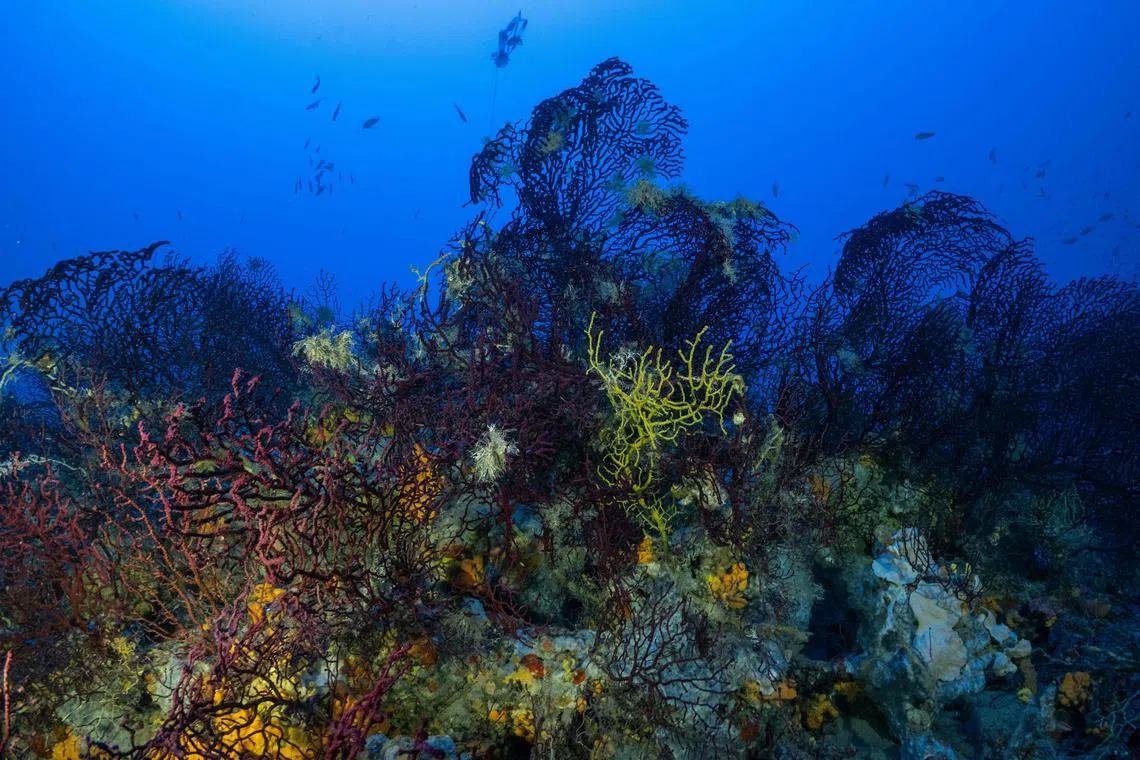Pledge to protect oceans falling short of billions in funds: Report
Sign up now: Get ST's newsletters delivered to your inbox

Less than three per cent of all marine conservation areas globally are considered truly protected.
PHOTO: AFP
PARIS - Nations are spending less than 10 per cent of what is needed to meet a global target on marine conservation and must commit more at next week’s UN oceans summit, non-governmental organisations said on June 5.
In 2022, nearly 200 countries agreed to designate 30 per cent of the world’s oceans as protected areas by 2030, but so far just 8.4 per cent are covered.
Some US$15.8 billion (S$20.3 billion) is needed every year to achieve the “30x30” target, but only US$1.2 billion is being spent now, said a new report by a consortium of environmental groups.
This gap is “alarming” and must be redressed at the UN Ocean Conference (UNOC) starting on June 9 in Nice, France, said Mr Jonathan Kelsey from the Bloomberg Ocean Fund, which co-authored the report.
“UNOC is a critical opportunity for governments to narrow this gap with concrete actions, including... increasing financing that truly delivers on their ocean promises,” he said in a statement.
Of all the UN’s sustainable development goals, protecting the oceans is the least funded.
Some 90 per cent of ocean conservation is financed by public money and “in the short term, governments will need to increase funding flows to meet the capital injections needed, particularly high-income countries”, the report said.
Environment groups have warned against the spread of “paper parks” – protected areas in name only that lack the resources to enforce any real conservation measures.
Less than 3 per cent of all marine conservation areas globally are considered truly protected.
Some forbid all forms of fishing while others place no rules, or almost none, on what activities are forbidden, allowing bottom trawling and other intensive industrial operations.
The report – co-authored by World Wide Fund for Nature, Campaign for Nature and the Marine Conservation Institute, among others – said redirecting subsidies from harmful activities could also help fill the funding gap.
For example, the US$15.8 billion needed every year is just two-thirds of what the world spends on harmful fishing subsidies, it added.
“We cannot afford promises that remain on paper while our coral reefs bleach, our fisheries decline, and our coastlines wash away,” Ms Brianna Fruean from campaign group Together for the Ocean said in a statement.
“We need real protection, now – and we need investment that empowers communities on the front lines of change.”
France expects around 50 heads of state and government to attend the oceans conference, which runs until June 13 and is preceded by a major scientific summit.
Nations present will issue a joint declaration in support of ocean conservation but the conference is not a formal UN negotiation, and any commitments made are voluntary. AFP


